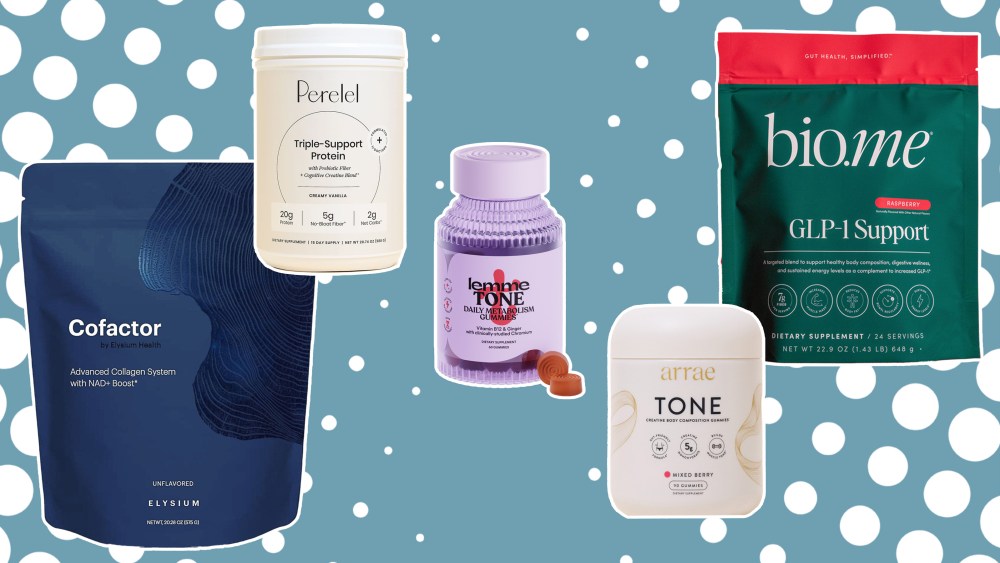Emerging Trends in Muscle Support: The Rise of Toning Supplements
The conversation around health and fitness has shifted significantly, especially with the growing interest in weight loss medications such as Ozempic, Wegovy, and Mounjaro. While these drugs can support weight loss, they often come with the downside of reduced muscle mass. This consequence has sparked a renewed focus on how individuals can not only maintain but enhance their muscle mass and physical vitality. As health enthusiasts and dieters look to combat muscle loss, they are frequently turning to dietary changes, strength training routines, and the convenience of supplements. A plethora of brands is responding to this demand with innovative formulations that feature muscle-friendly ingredients like creatine, protein, and collagen.
The potential for muscle-enhancing products is enormous, as highlighted by Mark Lacy, an investment banking director at Raymond James specializing in the health sector. Lacy notes that the traditional view of supplements as products for the “bulky” or male-dominated fitness community is evolving. Nowadays, these supplements cater to both men and women, appealing to various lifestyle needs. As fitness culture becomes more inclusive, many women are increasingly prioritizing strength training, marking a departure from previous generations. This shift highlights how muscle support exhibits broader applications beyond traditional gym aesthetics, emphasizing overall health and well-being.
Creatine is one such ingredient that has transitioned from a bodybuilder’s secret to a mainstream supplement category. Found naturally in muscles and the brain, creatine plays a crucial role in promoting strength and lean body mass, resulting in added benefits such as improved bone density and a hearty metabolism. Dr. Laura Kunces, a respected name in health supplementation, articulates that creatine leverages these strengths to assist anyone from workout enthusiasts to everyday individuals looking to enhance their physical capabilities. It’s becoming clear that creatine is no longer restricted to elite athletes but is an essential tool for anyone interested in overall wellness.
Alongside creatine, protein remains a fundamental component of muscle support, traditionally linked with energy and recovery. Innovative food brands are now developing diverse formats of protein supplements that go beyond shakes, with multifunctional products making significant strides. According to Dr. Kunces, when the body metabolizes protein, it converts into essential amino acids that help with multiple bodily functions—supporting not only skeletal muscles but also hair, nails, immune health, and even mood regulation through neurotransmitters like serotonin and melatonin. Adding to the mix is collagen, usually celebrated for its skin benefits, which also supports muscular health by providing essential nutrients that aid in muscle and joint recovery.
Interestingly, while supplements have historically not targeted female consumers effectively, recent trends reveal a concerted effort to fill this gap. Brands like Lemme, Perelel, and Arrae are focusing on this demographic, promoting strength training as a vital component for aging gracefully. Women seek ways to bolster their muscle health, as strong muscles correlate with improved bone strength, enhanced metabolism, and better immune function. As Dr. Kunces notes, an increasing number of women are looking for effective ways to integrate strength into their fitness routines, marking an empowering change in fitness culture.
Among the popular brands launching innovative muscle-boosting supplements, options vary significantly in functionality and appeal. Lemme Tone, introduced by Kourtney Kardashian Barker, has made a splash in the beauty supplement market. Priced at $30, it combines metabolism-boosting ingredients like chromium picolinate and apple cider vinegar in a gummy format. Then there’s the Bio.me GLP-1 Support Powder priced at $50, effectively tackling the side effects of weight loss drugs by marrying protein, fiber, collagen, and B vitamins to boost muscle support. Another noteworthy entry is Arrae Tone at $55, which emphasizes creatine’s cognitive and muscular benefits with an anticipated sales forecast of $30 million in its debut year.
Additionally, Elysium Health Cofactor and Perelel Triple-Support Protein are making waves with their unique formulas. Cofactor, retailing at $75, melds collagen with vitamins essential for joint and cellular health. Meanwhile, Perelel, at $55, offers a comprehensive protein and creatine blend that not only enhances muscle mass but also introduces essential fiber for digestive health. Industry experts believe the demand for these products could skyrocket, hinting at a potential evolution in how supplements are perceived and utilized. This burgeoning category reflects a motivational shift in consumers seeking to enhance their fitness journeys, prioritizing muscular health alongside weight loss efforts.
In conclusion, the burgeoning interest in muscle-supportive supplements highlights a significant shift in health and wellness culture, underpinned by changing consumer attitudes toward fitness. As more individuals seek holistic solutions to maintain robust physical health—especially amidst the side effects associated with certain weight loss drugs—brands are increasingly innovating to meet these needs. These supplements and their evolving formulations reflect a broader understanding of the interconnectedness of muscle health, overall wellness, and the pursuit of a balanced lifestyle. The market is ripe with opportunity, and as the trend gains momentum, we can expect a brighter outlook on muscle support in the health industry in years to come.

